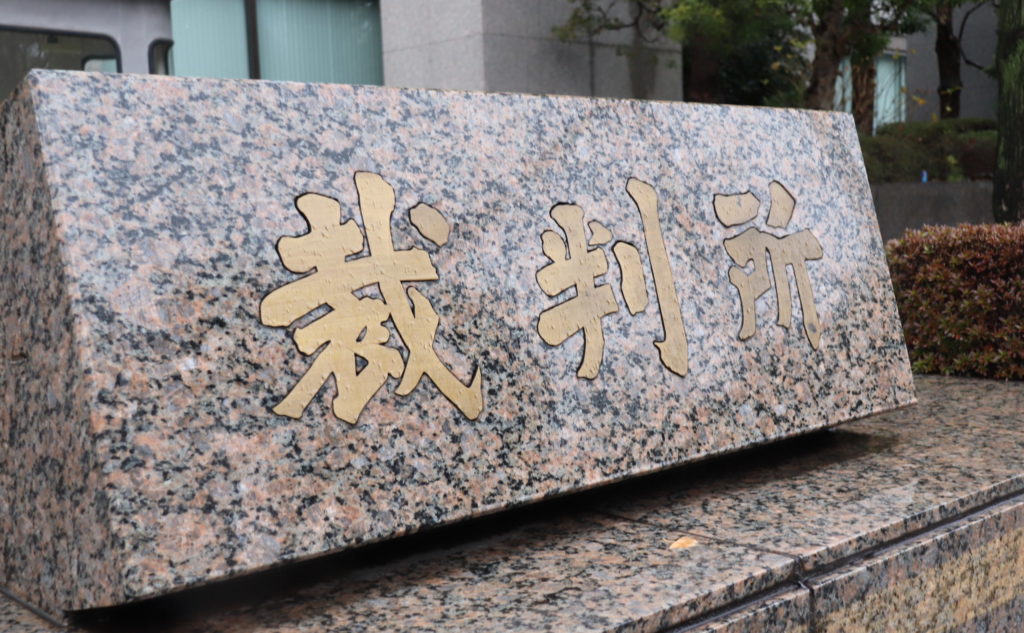Adults in the Student Suicide Case
Kyodo News Exercises “Prior Restraint” / Lawyer Defending Freedom Of Expression “Shameful Act For A News Organization” / Why Is This Trial Significant Now?
2024.04.02 16:03 Nanami Nakagawa
The “Freedom of the Press Trial” is progressing. This is a lawsuit filed by former Kyodo News reporter Yoichi Ishikawa against the company.
Ishikawa published a book, “The Sanctuary of Bullying,” from Bungeishunju, which follows the bullying-suicide incident that occurred at Kaisei Gakuen High School in Nagasaki City. Kyodo News responded by ordering a ban on reprints.
However, the conduct of Kyodo News, which is more serious than the ban on reprinting, was highlighted at the third oral argument held at the Tokyo District Court on March 22, 2024.
Lawyer Yoichi Kitamura, representing the plaintiff, called it “the most shameful act for a news organization.”
Article 21 of the Constitution
Presiding Judge Takashi Nakajima had previously posed the following questions to the plaintiff.
“What exactly does ‘deprived of the opportunity to exercise freedom of expression’ mean?”
In return, Kitamura brought up the notice that Kyodo News sent to Ishikawa. This notice was issued when Ishikawa’s permission to write outside the company was revoked and reprinting was prohibited. It gave a warning as follows:
Please note that reprinting without permission or publicizing this incident (between Ishikawa and Kyodo) in the media violates Employment Regulations and Outside Activities Regulations and may result in disciplinary action.
Kitamura pointed out the significance of this sentence in his preliminary document.
This is nothing more than an attempt to prevent the expression itself from being expressed before it can be expressed. This is the very act of prior restraint of expression, and is the most shameful act for the defendant, who is a news organization.
The plaintiff wrote on page 9 of the petition that “the plaintiff was deprived of the opportunity to exercise freedom of expression.” As stated above, the plaintiff was subjected to “prior restraint of expression” by the defendant, denying him the opportunity to publicize his story in the media when he should have been free to do so.
“Prior restraint” is an act that is in principle prohibited by Article 21 of the Constitution in order to protect freedom of expression. This is because people’s right to know should not be jeopardized by concealing information in advance.
This case is considered to be a significant lawsuit that questions the rights and wrongs of media organizations that violate rights guaranteed by the Constitution.
“It’s nothing more than a threat.”
For many years, Kitamura has made it his mission to protect freedom of expression and the people’s right to know, both of which are fundamental to free expression. Kitamura’s “Courtroom Notes Lawsuit,” commonly known as the “Repeta Case,” is so recognized that it appears in law school textbooks. In 1989, taking notes in court was not allowed that time, but he won the right from the Supreme Court.
After the oral pleading, Kitamura responded to an interview with Tansa.
Kitamura has also taken part in other trials involving media organizations. However, he said he was surprised by Kyodo News’ actions this time. This is because Kyodo News has gone so far as to exercise “prior restraint.” He argues that this is more problematic than censoring the actual reported material or the manuscript before it is reported.
“The company that has disciplinary power threatens its employees ‘don’t say anything,’ even when the company has no clue what they are going to be public. It’s nothing more than a threat.”
“No news organization has ever gone so far as to exercise prior restraint in advance.”
What is Kyodo News afraid of?
Why did Kyodo News abandon its pride as a news organization and take such threatening action? Isn’t this because Kyodo News itself has committed numerous regrettable acts? It would be a problem if Ishikawa made that public.
Kyodo News, for example, apologized to the Nagasaki Shimbun the day after the book was published. Without questioning the author, Ishikawa, what had transpired, they concluded that “there are parts of the article that are damaging the reputation of the Nagasaki Shimbun Company and its reporters.”
The bereaved family of the bullying-suicide case sent handwritten letters and nine-page opinion letter to Kyodo News. They appealed to Kyodo News that the content of the book is based on fact. Nonetheless, Kyodo News ignored the content.
Kyodo News also did not reveal the members of the examination committee that pursued Ishikawa’s responsibility. When Tansa investigated, we found out that the members were not selected according to the company’s regulations. The results of the examination, which are supposed to be made public in principle, were not made available.
If these details were to become public, Kyodo News would lose credibility as a news organization. They must have been afraid of that.
The next pleading: April 26 at 10 am in Courtroom No. 611 of the Tokyo District Court
Three lawyers representing Kyodo News attended the oral pleading that day. They were Katsunori Fujita, Yuichiro Yasui, and Norihito Naka. But there were no questions or objections.
After the trial, I called Kyodo News’ public relations department and sent a letter of inquiry.
“What do you think about the plaintiff’s argument that Kyodo News’ action amounts to ‘prior restraint of expression’ and is the most shameful act for the defendant, who is a news organization?”
The answer was, “We will clarify our claim during the trial.”
The next hearing will be held at 10 am on April 26 in Courtroom No. 611 of the Tokyo District Court.

Photo by Yusuke Kohatsu
(Originally published in Japanese on March 22, 2024. Translation by Mana Shibata.)
Adults in the Student Suicide Case: All articles
 Newsletter signup
Newsletter signup